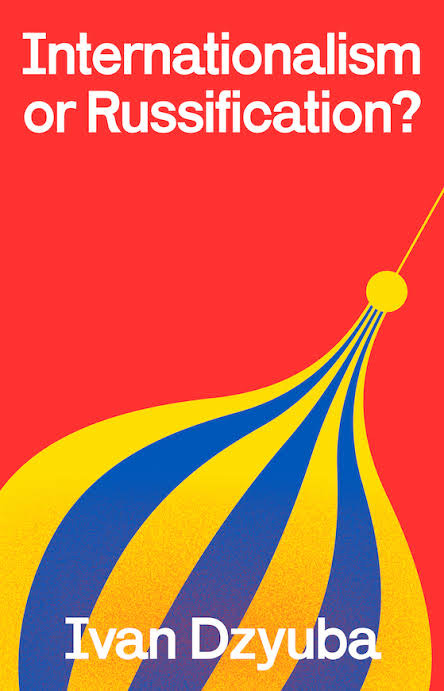Internationalism or Russification? A new edition.
Years ago, I posted on social media about how this book was in dire need of being reissued in a fine new edition - and now it has been, by Resistance Books in the UK. Those comrades have done a great service ensuring this work by the then Ukrainian communist dissident (not a word he would have used nor would many of those labelled ‘dissidents’ in the West, but it works as a shorthand) and literary critic Ivan Dzyuba is once again available in print.
One passage is always worth quoting in full:
“‘Has it never really occurred to you when reading Pushkin, Lermontov or Gogol, that there is another Russia beside the official, governmental one?’ Herzen once asked.
Today we must address this question to those who elevate to the sacrosanct level of official theory the ill-omened thesis about the USSR being the heir of the Russian Empire; who want all its victims and prisoners - the occupied and deceived peoples - to consider this empire, this prison of the nations, as their common historic ‘Fatherland’; who glorify all sorts of ‘reunions’, ‘annexations’, and ‘territorial acquisitions’, things done by ‘official, governmental Russia’, and forger that the ‘other’ Russia had nothing to do with any of this, that it opposed all this and demanded its renunciation.
A strange fact emerges: our historians and theoreticians consider themselves the ideological heirs of Chernyshevsky and Herzen, and by no means those of S. Solov’yov or M. Katkov, and yet in their judgements of the ‘gathering together’ of the Empire... they make common cause with the latter and not with the former.
Do they think that to call themselves the heirs of Chernyshevsky and Herzen, it is enough to celebrate their jubilees from time to time and to enshrine them in anthologies?!
Does it suffice to honour the names of the representatives of unofficial Russia in order to assimilate their ideas?
Hardly.
Just as allowing the names of the champions of official despotic Russia to pass into oblivion does not necessarily imply forgetfulness of their ideas.”




